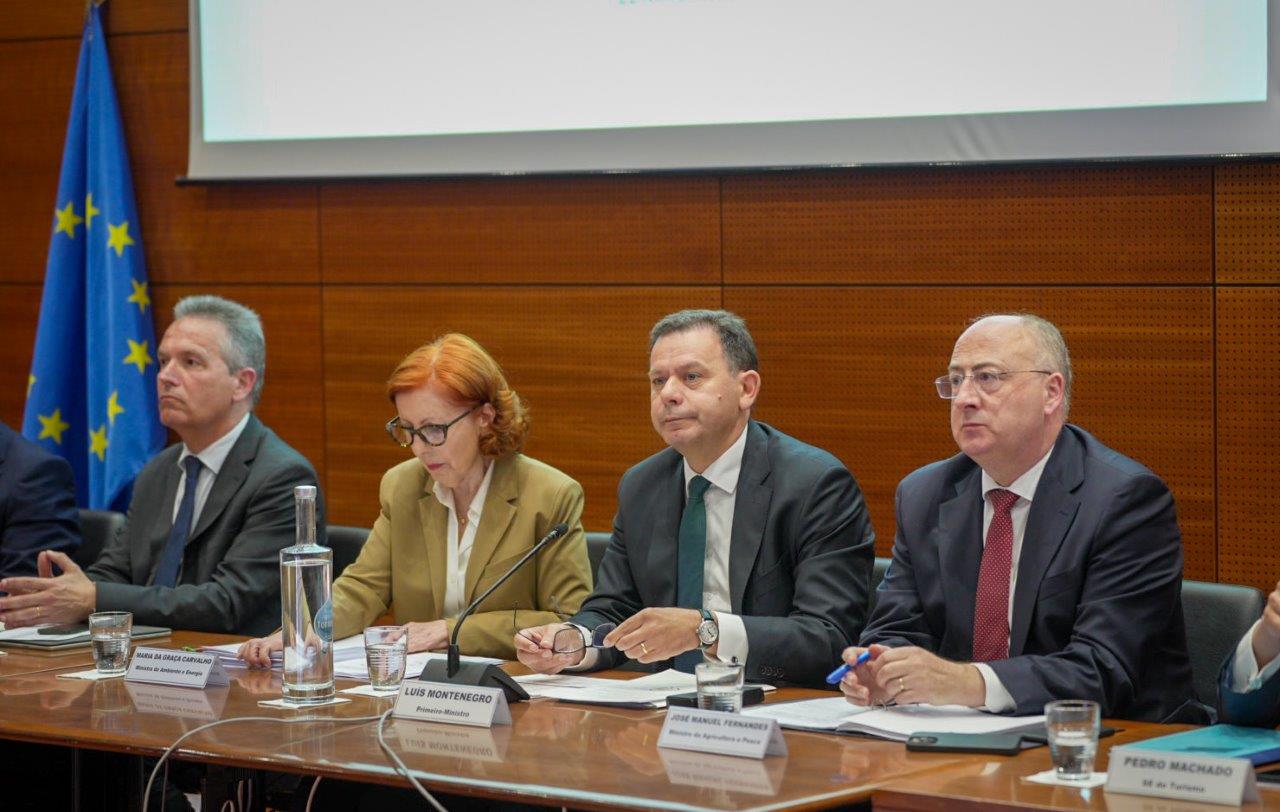“Situation is still delicate,” warns PM
The Portuguese government is easing the restrictions imposed on water consumption in the agricultural and urban – including tourism – sectors in the Algarve.
Prime Minister Luís Montenegro made the announcement on Wednesday afternoon after a meeting of the region’s drought commission in Faro, having also revealed an additional €103 million of investments in water efficiency projects.
“The government has decided to revoke Resolution 26A of 2024, dated February 20, and in the coming weeks, another resolution will be approved and published which aims to continue a policy of responsibility while still easing the restrictions that are currently in place due to the situation in 2023,” Montenegro said.
The PM revealed that the government will approve a “reduction of about 20 cubic hectometres in the restriction that is currently in place in all areas of activity”, divided between “2.65 cubic hectometres of relief in urban consumption, 13.14 in agricultural consumption, and 4.17 in tourism consumption”.
“A greater relief in the agricultural sector is highlighted here, because it was also the sector that faced greater restrictions compared to the situation in 2023,” he argued, justifying the government’s decision with the rainfall in recent months, which has improved the overall water reserve situation in the region.
Montenegro also said that these figures represent, “compared to 2023, a 10% decrease in urban consumption availability and a 13% decrease in agricultural and tourism consumption.”
“We have taken this measure aware of the positive evolution of the hydrological situation in recent months, aware that water is a scarce resource that needs to be protected, preserved, and well-managed, and aware that maintaining this policy also implies reinforcing investments, in addition to all the monitoring we have done today and will do again next August, precisely to assess the measures we are now taking,” the PM added.
Despite the more positive outlook, the PM warned that the Algarve is not out of the woods yet as the region’s drought situation still persists and there is a need to preserve water resources.
Luís Montenegro also said it is necessary to “reduce losses in various water uses” and to use wastewater in cases where this source is viable, such as in golf courses, ensuring that the government’s goal is also to promote investment that “can help in this more efficient water management.”
The government is also reinforcing its investments in water efficiency in the Algarve by €103 million, having highlighted an additional €27 million for “strengthening water efficiency measures in the Silves, Lagoa, and Portimão agricultural perimeter,” and €10 million for “enhancing water efficiency measures in public supply and for the use of treated wastewater.”
It has also decided to launch “various studies to assess the water potential of river basins, notably the Alportel basin, and to evaluate underground water availability.”
Adds the government in a statement, these are in addition to the investments planned under the PRR amounting to 237.4 million euros (with only 5% execution so far), “with priority and relevant projects such as the Pomarão water intake to increase inflows to the Odeleite dam, the Albufeira desalination plant, and groundwater monitoring.”


























